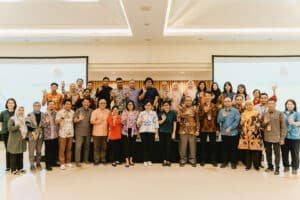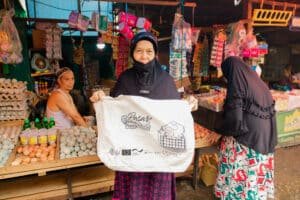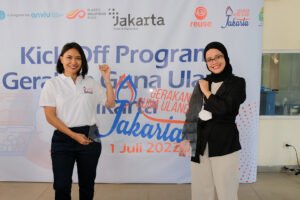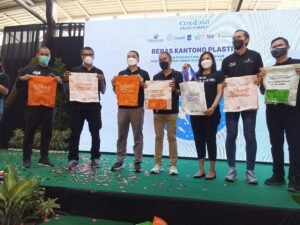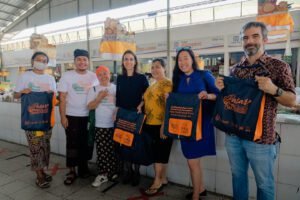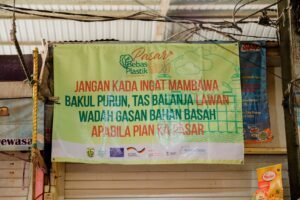This guide is helpful for businesses to start shifting to a single-use, plastic-free business model to preserve the environment and save resources. More than 85% of businesses in DKI Jakarta Province have kept their organizational structure the same to execute single-use plastic waste control, and 71% of businesses have understood the benefits and immediately planned to implement this guide. 66% of them even have regulations related to the environment and the reduction of single-use plastics within the business entity.
Reuse is Better than Single-Use
Reusing containers/packaging is better as it has a lower carbon footprint and environmental impact even after washing. The recycling potential of non-disposable plastic packaging is also higher, recyclability tends to be easier, and there are no hidden cost externalities and poor waste handling.
Economic Benefits
Businesses can save by replacing PSP packaging with either no PSP or more environmentally friendly alternatives. 48% of surveyed and assisted businesses implementing reduction and handling found the economic linkages insignificant and tolerable, contrary to the expectation that PSP control adds a cost burden to businesses in the long run.
Supporting DKI Jakarta Provincial & National Regulations
In line with the Regional Policies and Strategies contained in the DKI Jakarta Provincial Governor Regulation No. 96 of 2019 concerning Obligations to Use Waste in Areas and Companies, this guide makes it easier for business entities to carry out their obligations and report on good practices. In addition, business entities can more easily set targets until 2030 related to several types of single-use plastics and mandatory reporting business entities regulated by Permen LHK 75 of 2019 related to the Roadmap for Waste Reduction by Producers.
Supporting Communities Calling for PSP Alternative Options
More than 73 percent of consumers said they are ready to switch to more environmentally friendly products, and 41 percent said they prefer natural and organic products, especially among young people, millennials (85%), and Gen Z (80%). This will continue to increase, as evidenced by the number of consumers more concerned about environmentally friendly products in Indonesia, rising by 112% from 2019 to 2020. Non-PSP packaging is the future.
This guide is helpful to make your business a single-use, plastic-free business through six simple steps:
Data collection
Reduction
Sorting
Recycling
Reporting
Continuous Improvement


